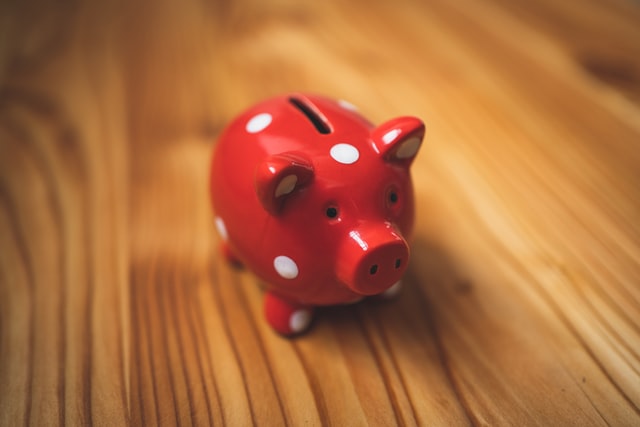Being frugal is all about being conservative with your resources and how you spend them. While it might have some negative connotations for some people, it all boils down to how each person chooses to manage their lifestyle. From budgeting to planning your meals, it’s pretty common to have questions and be doubtful when contemplating adopting this trend. That’s why we’ve enlisted the help of professionals on the subject to clarify the most common concerns. Here are their insights:
How can a wedding be frugal?
buA wedding can be as frugal as you want or need it to be. The important thing is to look at your finances, priorities, values, and goals and come up with a figure that honors all aspects. This can be tricky, but it’s worth it! If you want to plan a wedding without taking on debt, you’ll need to be realistic about what you can actually afford to spend. This includes looking at your current savings as well as any financial contributions from family members, as well as what you might be able to save to allocate towards your wedding budget throughout the course of your engagement. In the end, all you truly need to have a wedding is the two of you and most likely an officiant. You can go a super affordable route by eloping or going to the courthouse. If you’re wanting a more traditional celebration with guests present, you’ll have other aspects to consider such as venue size, decor, meals, and more.
– Jessica Bishop, The Budget Savvy Bride
How can a family keep their finances simple at home?
What’s your favorite tip on frugality?
One of my best frugal living tips is always to negotiate. You can negotiate your salary, your phone plan, your health insurance, big purchases, your Airbnb accommodation, secondhand purchases, and more. Negotiating will pay off in the long run. Companies want your business and don’t want to risk losing you as a customer. That’s why asking them for a discount is such a good idea. For example, last year alone, I negotiated my phone bill, utility bill, holiday accommodation, and salary. It pays off to call or email when your costs increase or you’re looking to switch providers.
– Marjolein, Radical FIRE
Is it possible to be frugal and have passive income?
Not only is it possible, but that’s the best possible path to passive income. If you are spending too much money, there’s none left over to save and invest. We have thousands of dollars in passive income every month and it all started with being frugal. We used the money we saved to fund our retirement plans and buy rental properties. The rental properties do require work sometimes, but it’s usually only a few times a year.
Why is it important to draft a budget when trying to save money?
A budget is simply you telling your money where to go. If you don’t know where it’s going, it’ll always magically slip out of your account, and you’ll never have enough. When you’re trying to save money, you don’t have to sacrifice all the things you love – you can still eat out, buy your morning coffee, and go to the movies. However, your budget is what makes all of that possible. Want to spend a day out shopping? No problem! Budget for it. Want to eat at a fancy restaurant? That’s perfectly fine… if you budget for it.
You may be surprised at how little you really need to save to create a huge nest egg. There’s a good chance you have that extra money every month right now. Start with a budget. Start tracking your expenses. See how much is left over at the end of the month. Once you realize you do have something left over, start paying yourself first. Set your savings account to automatically draft the amount you can afford at the beginning of each month. Then you live off the rest. It’s that simple, but first, you need to know where your money is going.
– Kalen Bruce, Money Mini Blog
Where can one save money while living in a big city?
How can banks help their clients save money?
Your bank should be seen as a partner and ally in managing your finances. This means helping you build your savings and not costing you money. One simple way banks can help you save money is by offering accounts with no monthly maintenance fees. Banks that offer higher-than-average interest rates can help you to build on the money you’re already saving in your checking and saving accounts. Offering unique products such as add-on CDs is another way banks can help you build your nest egg while earning an optimal rate.
Banks can also help you manage your money by offering digital tools like Online Banking and mobile apps. Features like low-balance notifications can help you avoid insufficient funds charges and accidental overdrafts, while automatic transfers can help you move money into a savings account on a regular basis. Mobile apps that offer an ATM locator feature can also help you easily find in-network ATMs to avoid fees. Banks may also offer ATM reimbursements for when you do have to use a third-party machine. When choosing a bank, you should consider those that make an effort to arm you with the resources, tools, and advice you need to make smart financial choices.
– Marissa Scott, Bank5 Connect
How to invest while trying to be frugal?
Investing while being frugal is an art rather than a science. The first step to investing while being frugal is to put your investments on auto-pilot. Instead of manually transferring money from your bank account into your investment accounts, follow the “set-it and forget-it” rule: Automatically transfer and invest a pre-determined amount of money. This strategy helps you continue living frugally because you can’t spend money that doesn’t hit your bank account.
The second strategy is to enroll in your employer’s 401k plan – especially if there is an employer match. For example, if your employer matches up to 3% of your salary and you contribute 3% of your salary into your 401k plan, you automatically just made a 100% return on your investment through your employer matching contribution. It’s free money. The third strategy is to start investing with $100, all while being frugal. You don’t need thousands of dollars to invest. You can use a low-cost robo-advisor account and increase your monthly investment contributions as your income increases. As long as you invest consistently, automatically, and over time, you can make a difference in your portfolio!
– Fiona Smith, The Millennial Money Woman
How can you best save money on groceries?
There are so many great ways to save money on groceries! The first way to save money is by shopping where groceries are the cheapest. Spend a bit of time comparing prices on the dozen things you buy the most at two or three stores. Try to do most of your shopping where prices are the lowest. Then, you can save more money by shopping the sales. Don’t plan your menus and go grocery shopping, but look at the sales first before shopping. If chicken is on sale this week, plan your meals around the chicken and skip the more expensive pork that isn’t on sale. This will save you money right away, just by changing the way you think about shopping. Another great way to save money on groceries is by shopping ahead with the sales. If peanut butter is on sale this week, buy more than the one jar you need this week. Plan ahead and buy 3 or 4 jars so when you run out, you don’t have to pay full price for peanut butter. Do the same for pasta sauce and whatever else is on sale this week. The more groceries you do this for, the more money you will save. In frugal circles, we call this building a grocery stockpile and this really is the best way to save money on groceries.
– Kristen Whirrett, Joyfully Thriving
What is your biggest tip on money management?
Make Extra income! If you want to live the life you want, then you must find ways to make more money. If not, then try to cut expenses and constantly stress about money. There are so many ways to make extra money today. You have to match your skills and think outside the box. While you work on working on making more money, focus on paying yourself first. This means when you get paid, you immediately move money to your saving accounts. That is how you manage money better.
– Kristy, Money Bliss
How can one be frugal when traveling?
One of our favourite ways to be frugal when we travel is to meal plan even when we are on the road, rather than relying on takeaway or restaurant dining the whole time. Grabbing a few grocery items for breakfast and lunch is a huge saving compared to buying each of these meals, especially when travelling with kids. This works particularly well for road trips when using a cooler or when staying in hotels with a kitchenette.
– Holly Connors, Four Around The World
Is it possible to save up reliably when you have a family?
What’s your biggest budgeting tip?
- If your goal is to be debt-free, prioritize eliminating your debts first ( by following one of two techniques called debt snowball and debt avalanche).
- If your goal is to save as much as possible for some upcoming purchase, cut down all non-essential expenses.
- If your goal is to save and invest after essential expenses, set an amount aside for investing every month and save the rest for rainy days.
Is investing a good option for frugal people?
Being frugal means that you look after your money. But if you put your cash into a standard savings account, because of inflation, you’ll actually be worse off. What’s the point of being careful and then throwing your money away? Investing is a way to potentially grow your savings and it doesn’t have to be high risk. There are plenty of funds out there that will invest in different industries to minimize your risk and give you a decent return.
– Pete, Household Money Saving
Does time management impact frugality?
Being frugal and living a frugal lifestyle is all about resource management. And one of our most valuable resources is time! When we manage our time well, this can have a big impact on how we spend our money. For example, a common time management tip includes having a morning routine. Our morning routine might include eating a healthy breakfast, having a cup of coffee, and packing our lunch for work. By managing our time in the morning, and knowing how much time we need to give ourselves for our morning routine, we can limit the opportunities for spending money when we don’t need to. With a good morning routine, you will be less likely to be in a rush and “have to” grab breakfast and coffee from the coffee shop on the way to work or not have a packed lunch. Another example of how good time management is tied to being frugal is that you won’t be left making purchases at the moment when you all of a sudden realize you need something. This can cause you to spend more simply because you don’t have the time to think through your purchase decision. With good time management, you can anticipate what purchases you may need to make and plan accordingly based on your budget.
– Jill, Organizational Toast
How can tracking habits help you become more frugal?
Tracking your spending habits is very important when you are trying to live frugally. When you don’t keep tabs on what you’re spending it’s like you’re burying your head in the sand – and you’re almost sure to spend a lot more.
What do you think is the best frugal habit?
The best frugal habit is to make sure you negotiate monthly expenses. It doesn’t hurt to ask. The worst that can happen is that they say no. This can easily turn into a few hundred dollars in savings per year. For example, I make sure to negotiate my cell phone plans or negotiate our Internet plans regularly and try to stay out of a contract (that way, you have more negotiating power with the phone or Internet provider). This saves us over 60-75% on the Internet cost monthly, which adds up to at least $500 annually.
I put a reminder on my phone to call when the next ‘negotiation rounds’ are and prepare myself for the phone call by researching other phone or Internet plans available. Sure, it can take a phone call which will take time to wait for the customer service rep, but one hour of work and listening to Muzak can save you $600. In my opinion, that’s worth it.
– Gen Y Money
How to be frugal while buying a house?
Buying a house is probably the largest single purchase in most people’s lives. It usually costs hundreds of thousands of dollars and requires a mortgage. A loan adds to the cost and increases the price. Some people buy too expensive a house and end up house poor. But how can you be frugal while purchasing a home to save money over the long run? Here are a few ideas.
Save at least 20% of the expected purchase price. This is a tried-and-true approach to lowering monthly mortgage payments because it eliminates private mortgage insurance (PMI). Lenders set rates in part based on the loan amount and risk. They perceive a lower risk with a higher down payment and usually quote a lower interest rate.
The second one is a no-brainer, improve your credit score. It has a significant impact on your mortgage’s interest rate. Generally, mortgage applicants with a higher credit score receive a lower interest rate and vice-versa.
Lastly, buy a smaller house. The idea is simple but contrary to expectations in America. Less square footage typically means a lower price. In turn, this leads to lower property taxes, home insurance, maintenance, and other costs.
– Prakash Kolli, Dividend Power
Frugality is such a big concept that it’s normal to get lost in it sometimes. There are several ways of going about it and all of them are very valid options. The important part about it is finding something that works on a personal level. You might have a big family, or maybe you’re single. Whatever your circumstances are, it’s important to be creative and not lose hope!




